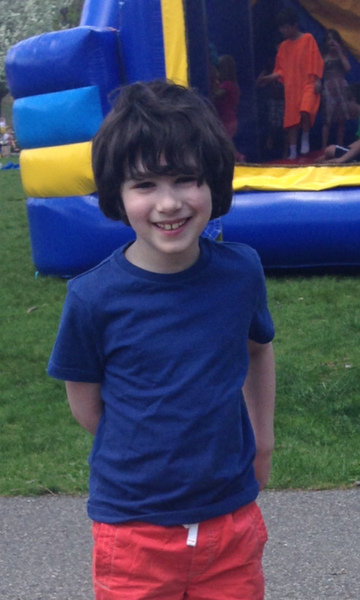“I don’t believe in autism,” retorted the woman as she exited the diner. She was an older woman, so perhaps she was a product of a generation that was more unfamiliar with autism. She was also leaving so I decided not to lecture her while following her to the parking lot. This happened several years ago, but sometimes I think of it and I wish I had the opportunity to explain autism to her.
My extended family was enjoying a meal at the diner when my 5-year-old son, Danny, realized he was bored and needed to leave immediately. When he was first diagnosed with autism, I often confided in strangers he was on the spectrum if he was doing something others might think was outlandishly unacceptable. Why should they think he was just being bratty? Plus, I didn’t want to leave them with the impression that I’m a bad mom who can’t control her offspring.
Opportunities for educating people seemed to pop up relatively often. After Danny finished his meal, he said, “Can we go?” which can be translated to “I’m leaving, you’d best join me!” I fumbled around in my purse looking for something to captivate his attention. Fortunately, my mother-in-law quickly handed him her iPhone to distract him from the horrifying reality that we were staying for a while.
I noticed the older woman look up several times during Danny’s outburst. She probably wasn’t the only person whose eyes were drawn to the spectacle. I think she offered some advice about how to calm him down.
Since I was still in “apologizing for his behavior by invoking the diagnosis” mode, I mentioned to the woman he had autism. She said that this generation was diagnosis-happy and everyone was being labeled.
Many children with autism are physically indistinguishable from their neurotypical peers, so people may get the impression they’re misbehaving and not having a meltdown. I don’t know if the woman had any experience as a therapist or an educator, but I was upset she felt she could dismiss our experiences with her announcement of disbelief.
It’s 2015 and it seems like everyone knows someone on the spectrum: a family member, a friend’s nephew or a neighbor’s child. There’s much more awareness. The objective now is acceptance. Many schools have implemented sensitivity training.
Hopefully, our society will better accept people with disabilities, and those with disabilities will be able to find their niche and a career that utilizes their strengths. Hopefully, this woman now knows autism is real.
The Mighty is asking the following: Share with us the moment you stood up for yourself or your child in regards to disability or disease, or a moment you wish you had? If you’d like to participate, please send a blog post to community@themighty.com. Please include a photo for the piece, a photo of yourself and 1-2 sentence bio. Check out our “Share Your Story” page for more about our submission guidelines.

